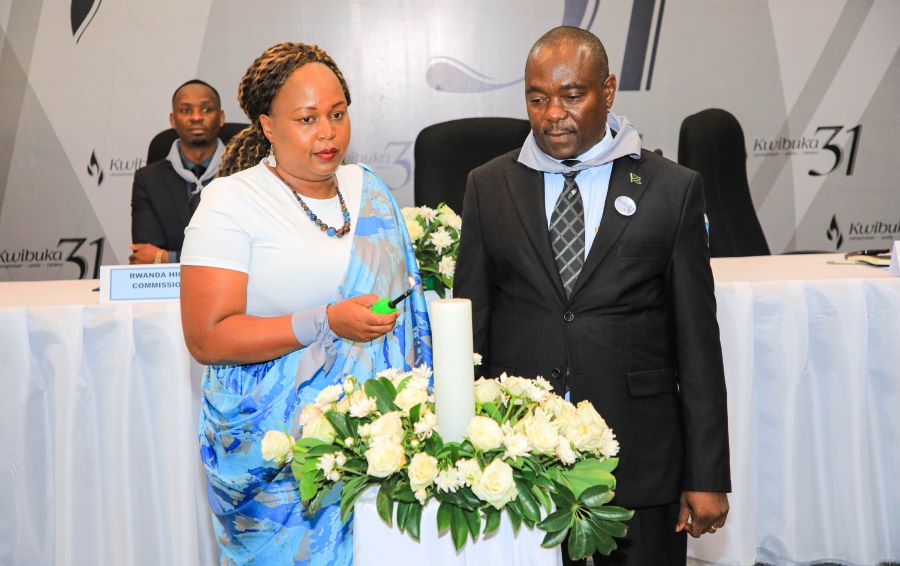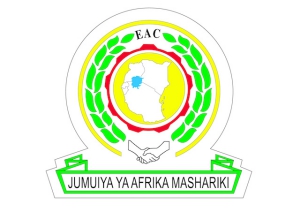

STATEMENT OF THE EAC SECRETARY GENERAL ON THE OCCASION OF COMMEMORATION OF THE 1994 GENOCIDE AGAINST THE TUTSI IN RWANDA
East African Community Headquarters, Arusha, Tanzania, 7th April, 2025: 31 years ago, the people of Rwanda and the world witnessed one of the most horrific scenes of violence and crimes against humanity of the 20th century. In just 100 days, over one million Tutsis and moderate Hutus were killed by Hutu extremists organized and funded by an extremist government.
This occasion marks a solemn tribute to those who lost their lives during the 1994 Genocide against the Tutsi and expresses solidarity with the survivors who have borne the burden of this tragedy for three decades.
We salute the resilience of the children who were orphaned, the parents who were rendered childless, the women and girls who were raped and left to bear children of their tormentors and all those with invisible scars.
Despite enduring deep pain and trauma, they have chosen to forgive and reconcile. They are the epitome of hope, renewal and inspiration for us all to recommit to, “Never Again to Genocide”.
The East African Community (EAC), of which Rwanda is a member, recognizes genocide prevention as a collective obligation. Article 5 of the Protocol on Peace and Security provides for cooperation in the prevention of genocide within the Community. Through Goal 17 of the Strategy on Regional Peace and Security, Partner States commit to organizing commemoration ceremonies for genocide victims at the regional level.
In line with this commitment, the EAC Heads of State Summit established a Genocide Monument at the EAC Headquarters in 2014, to honour the victims and reinforce our obligation to prevent future atrocities.
For over a decade, the EAC Secretariat has worked in partnership with the Rwanda High Commission, the UN Residual Mechanism for International Tribunals, during the walk to remember to commemorate the Genocide against the Tutsi.
The EAC Secretariat remains steadfast in its commitment to uphold this annual commemoration and other related initiatives at national, regional, and international levels aimed at preventing genocide.
As we commemorate, it is vital to recognize that the warning signs that preceded the 1994 Genocide; hate speech, incitement, ethnic profiling, disinformation, and dehumanization, still exist in parts of the region today. In the digital age, these threats are amplified by social media and other mass communication tools, compounded by challenges such as youth unemployment, governance gaps, and the proliferation of small arms.
As former UN Special Advisor on the Prevention of Genocide Adama Dieng once stated, “We must accept that there is no part of the world that can consider itself immune from the risk of genocide.” All nations must build resilience against such crimes.
Genocide is not spontaneous; it is a process. Prof. Gregory H. Stanton outlined eight stages: classification, symbolization, dehumanization, organization, polarization, preparation, extermination, and denial. He notes that the first stages precede later stages but continue to operate throughout the genocidal process and can be countered with timely, strategic interventions.
The EAC has established an early warning centre at its headquarters and national centres in several Partner States, with plans to extend coverage to all. These centres support the anticipation and management of conflicts through systematic data collection and analysis.
The EAC has mainstreamed genocide prevention into early warning indicators to ensure timely detection and response. Timely action is critical. History shows that warnings about the genocide in Rwanda were ignored. To prevent similar tragedies, stronger coordination between national and regional actors is essential, including efforts to ensure justice for victims and survivors.
The EAC calls upon Partner States to establish a joint mechanism for genocide prevention and pursue appropriate actions against perpetrators, in accordance with Article 5(2)(b) of the EAC Protocol on Peace and Security.
Hon Veronica M. Nduva
EAC Secretary General
